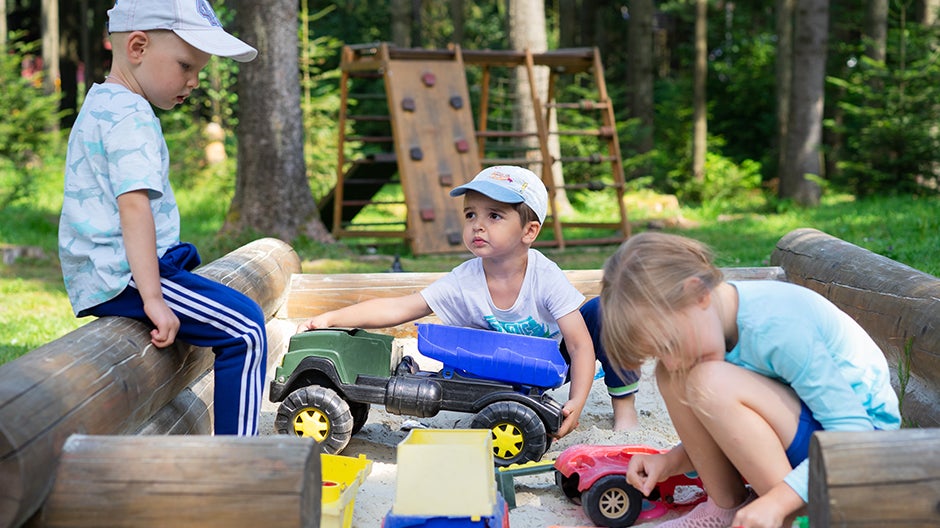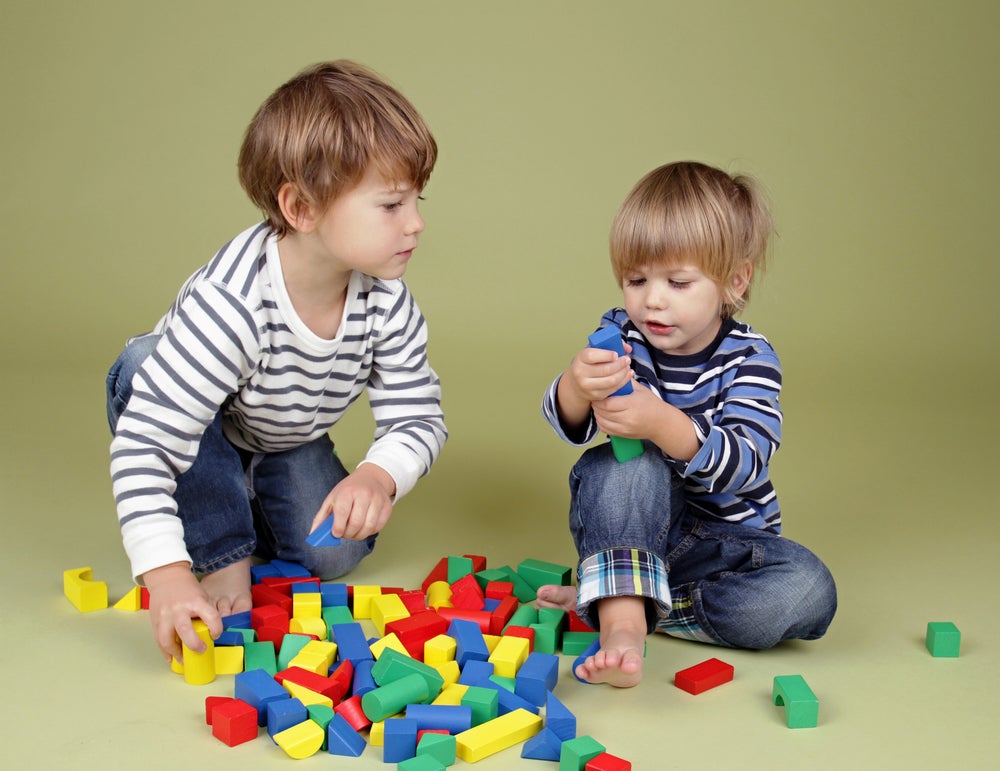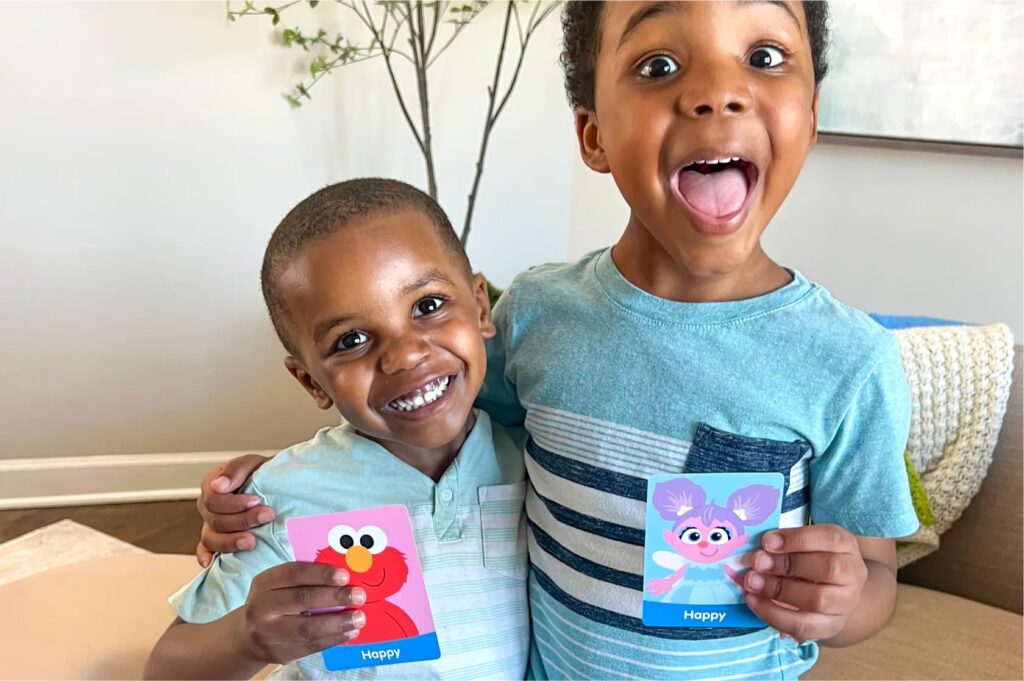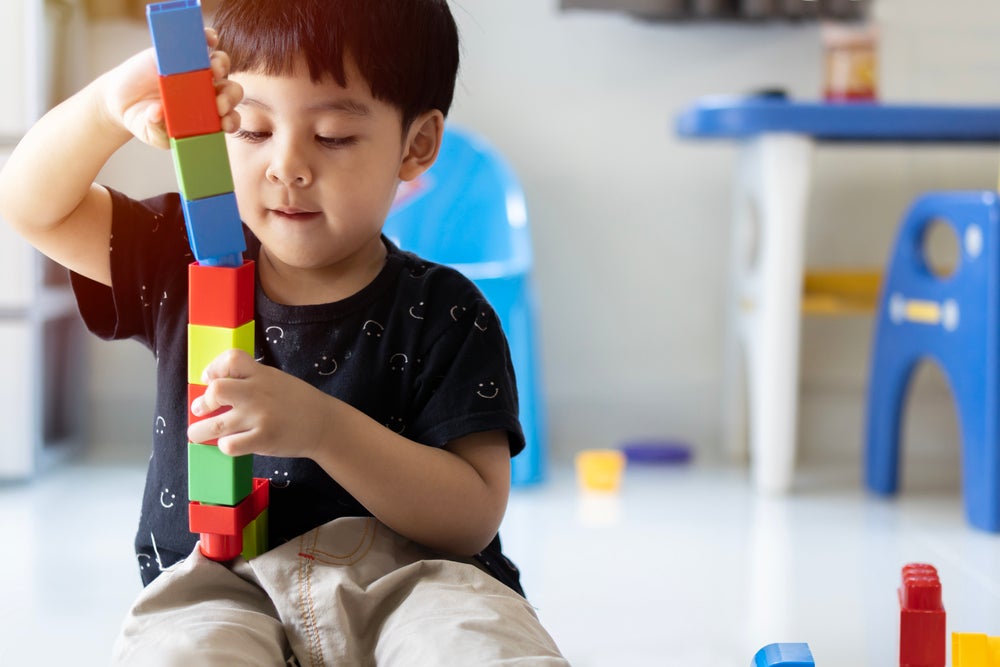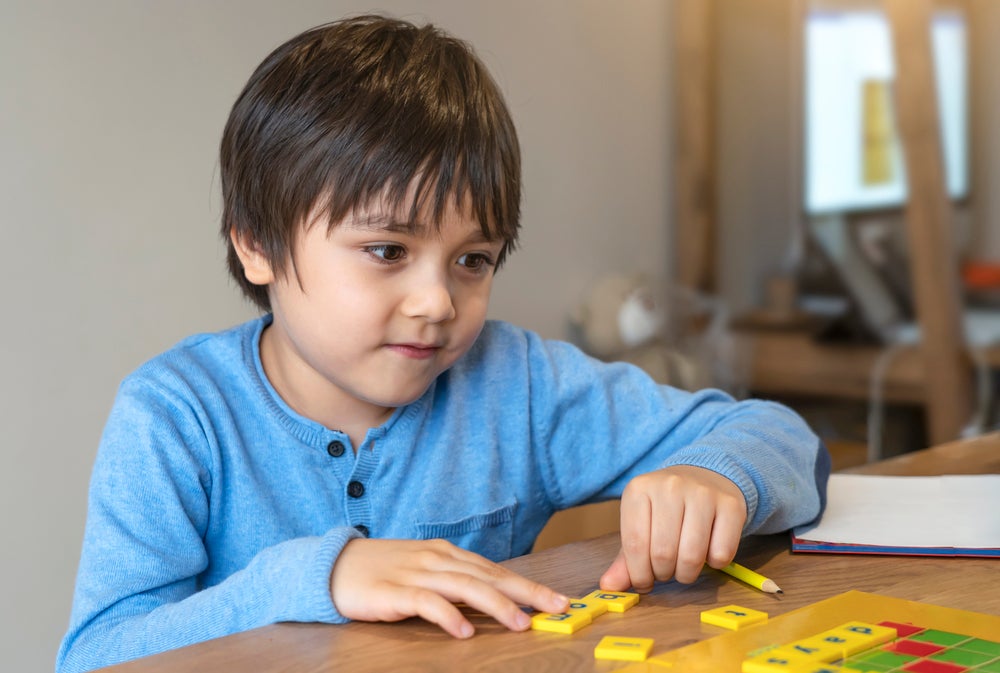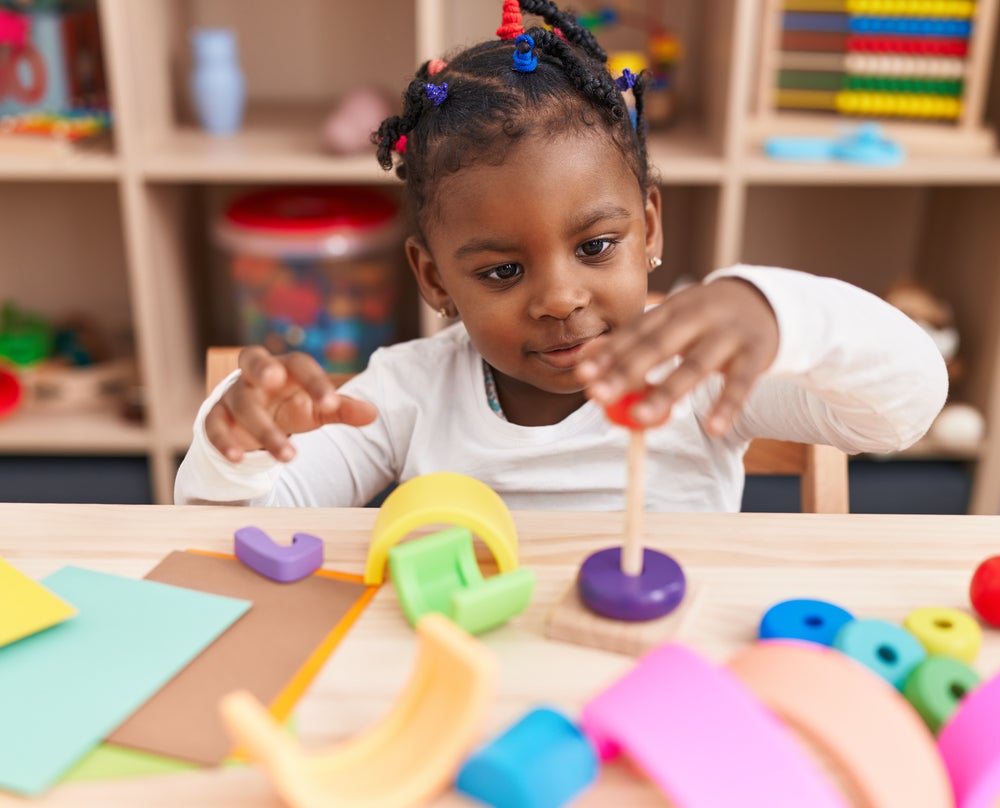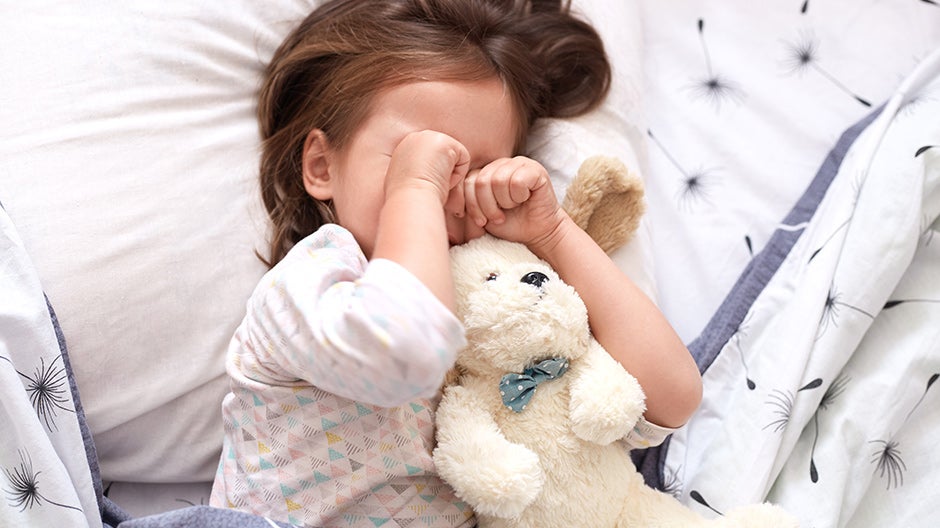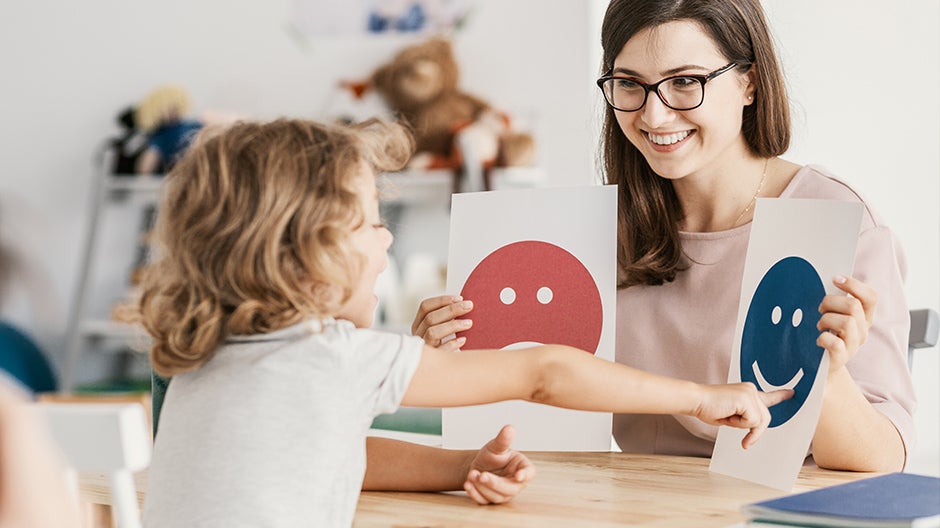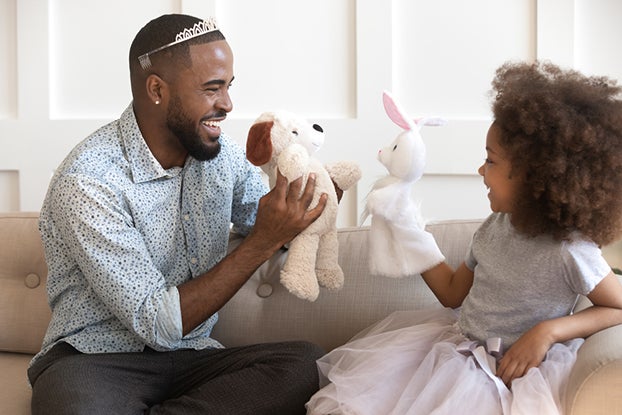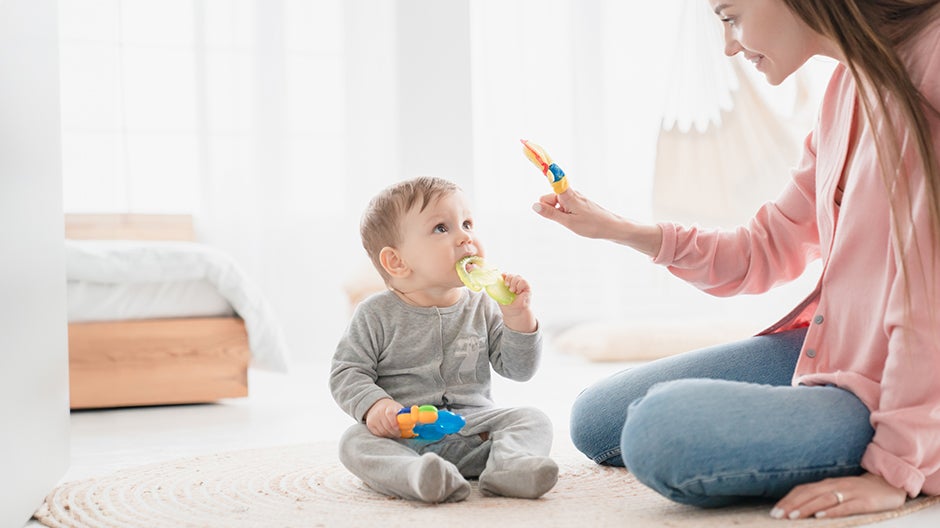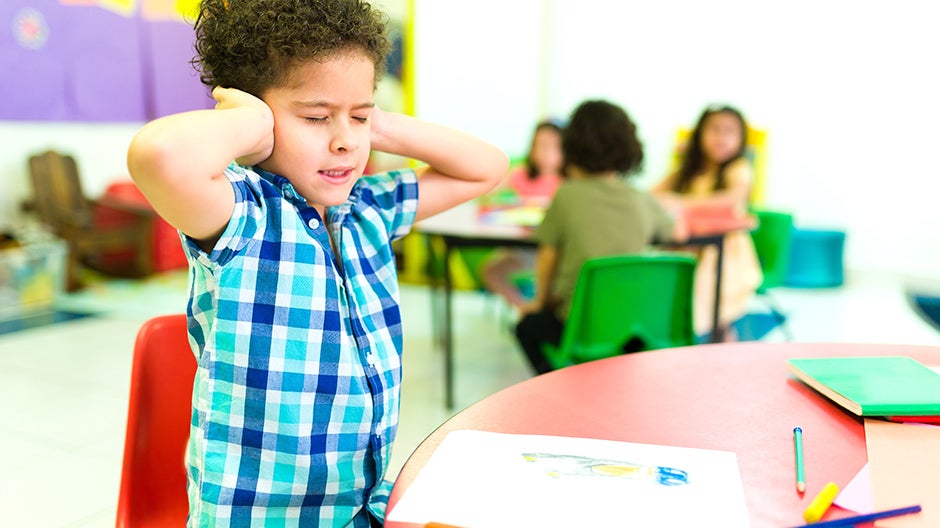One of the most visible—and inspiring—milestones you’ll see in your child’s development is the beginning of cooperative play. Within just a few years, the newborn kicking and flailing on their back (yes, it’s a form of early play!) is sharing, communicating, taking turns, and playing alongside other kids.
It’s an amazing progression, and it’s a key part of how kids develop Character, one of the 5 C’s at the heart of the Begin Approach to helping kids thrive in school and life. Kids with well-developed Character skills do better in school, experience less distress, and form healthier relationships, so skills like cooperative play matter a lot!
Want to learn more about what cooperative play is, what it looks like, and get examples of how to encourage it in your kids? Read on—we’ve got you covered.
The Short Cut
- Cooperative play is the last of six stages of play, and typically appears around age 2 to age 3
- During cooperative play, kids collaborate and cooperate with others to achieve a common goal
- Playing cooperatively strengthens a number of essential Character skills, including communication, turn-taking, sharing, and taking someone else’s perspective
The Definition of Cooperative Play

During cooperative play, kids collaborate and cooperate with others to achieve a common goal. It’s the last of six stages of play, and you’ll know your kids have reached it when you see them playing with a peer, rather than simply alongside them.
As they engage in cooperative play, kids develop their social skills in the following ways:
- Learning about the importance of rules and negotiation
- Beginning to resolve conflict through their communication skills
- Gaining empathy for others by understanding the importance of fairness
Examples of Cooperative Play
Whenever kids are working together to play a game or complete a task, they’re engaging in cooperative play. Play patterns can range from simple to complex, but here are a few examples you might see as cooperative play starts to emerge:
- Working together to stack blocks into a tower
- Playing tag or chasing each other around the house
- Teaming up to build a fort
- Playing a cooperative board game (like the ones from Peaceable Kingdom)
- Collaborating on a drawing with sidewalk chalk
- Pretending to be a team of superheroes, princesses, or animals on an adventure
- “Taking care” of stuffed animals or dolls together
What Cooperative Play Isn’t
Sometimes it’s easier for parents to understand what isn’t cooperative play. There are five stages of play preceding it, ranging from the unoccupied play of a newborn to the associative play of a toddler who shares toys with, but doesn’t yet work together with, a friend.
Unoccupied Play
The first stage of play is unoccupied play. This stage typically begins anywhere from birth to three months of age. Examples of unoccupied play include babies learning to kick their legs and explore their immediate surroundings.
Solitary Play
The second stage of play is solitary play. In this stage, kids begin to play alone with toys and do activities in a more organized capacity.
This is a normal, healthy part of development and prepares kids for future play with others.
Onlooker Play
Stage three is onlooker play, in which kids observe others playing. Similar to “people watching” in adulthood, observing helps kids understand social interaction and the unwritten rules of playing with others.
Parallel Play
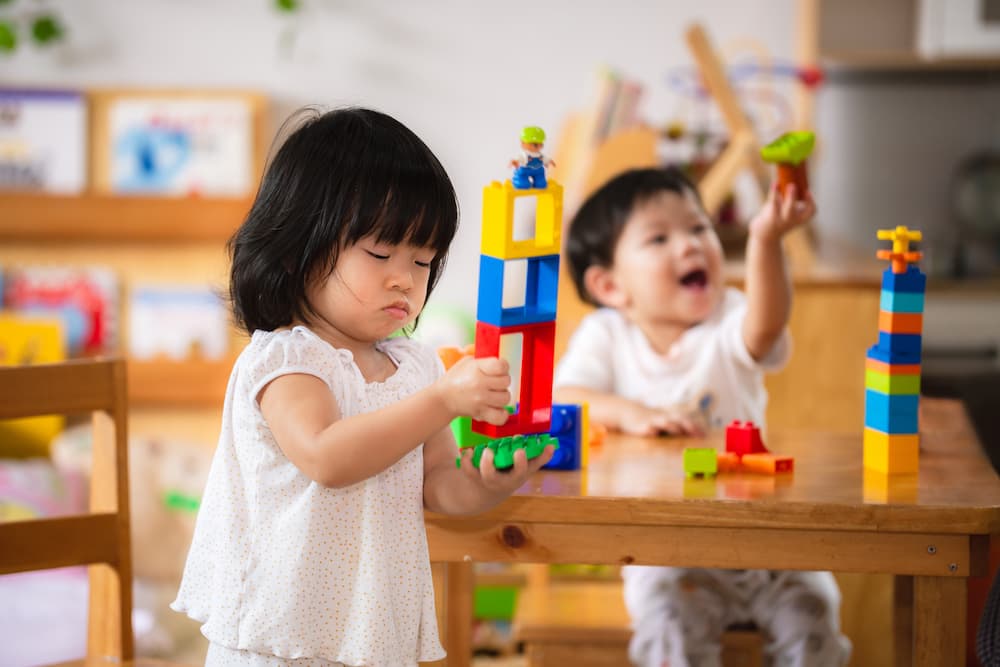
In stage four, parallel play, kids will often engage in their own activity while in the company of others. While they’re not yet playing with a group, they’re taking in lots of information to prepare for interacting with other kids.
Associative Play
Next is associative play. In this stage, kids begin to play together but without any organization or much interaction. A good example is a group of kids each building their own block towers. They may interact, but they’re not truly working together toward a shared goal like building a single tower.
In this stage, kids are able to put their newly acquired knowledge about engaging with others to the test. It’s the final stepping stone before cooperative play.
Remember: These stages of play are a guide to better understand your child’s development. It’s perfectly normal for children to enjoy all stages of play at any age, so don’t fret if you notice them switching back and forth between stages.
That said, if your child isn’t engaging in any kind of cooperative play by late preschool age, you should talk to their pediatrician about it.
6 Cooperative Play Ideas to Try with Your Child
1. Build a Fort
While we often talk about cooperative play meaning kids working together, kids can also play cooperatively with you! Building a fort, whether it’s indoors or outdoors, is a fun way to bond. This activity helps foster cooperation skills, expands your child’s vocabulary, and develops their ability to share ideas.
Take the time to discuss the materials you’ll use to build your fort and the best way to design the structure. This encourages kids to use their listening skills and imagination as they visualize how the fort will come together.
Once it’s built, enjoy reading, playing a game, or having some mindful media time together!
2. Play a Board Game
Playing board games with kids can help entertain them, but it’s also a great way for them to learn about rules and what they mean during social interactions.
Listening to the rules of a board game as they’re explained and following those rules throughout gameplay can be a challenge at first and will require some patience from both yourself and your child.
If your child accidentally breaks a rule, gently remind them of the rules and why they matter. This is important because rules help create structure and ensure fairness.
Be sure to model good sportsmanship for your child when you lose a game (whether it’s on purpose or not!) to show them what’s expected during social interactions. This can help promote empathy as your child considers the feelings of others in the game.
It’s also helpful to exhibit positive behavior when you win a game, such as shaking hands or offering a compliment to your child for participating and taking on a new challenge.
You might even like to practice some stress management exercises together if your child is struggling to regulate their emotions.
3. Create a Dance Routine
If your child loves to boogie, try choreographing a dance routine together!
Creating your own dance routine involves using your imagination, listening, negotiating which moves will or won’t be included, and having patience while the two of you learn and practice the choreography.
These are valuable skills that can be transferred to many areas of your child’s life and will serve them well as they interact with other children as they grow up.
4. Finish a Puzzle
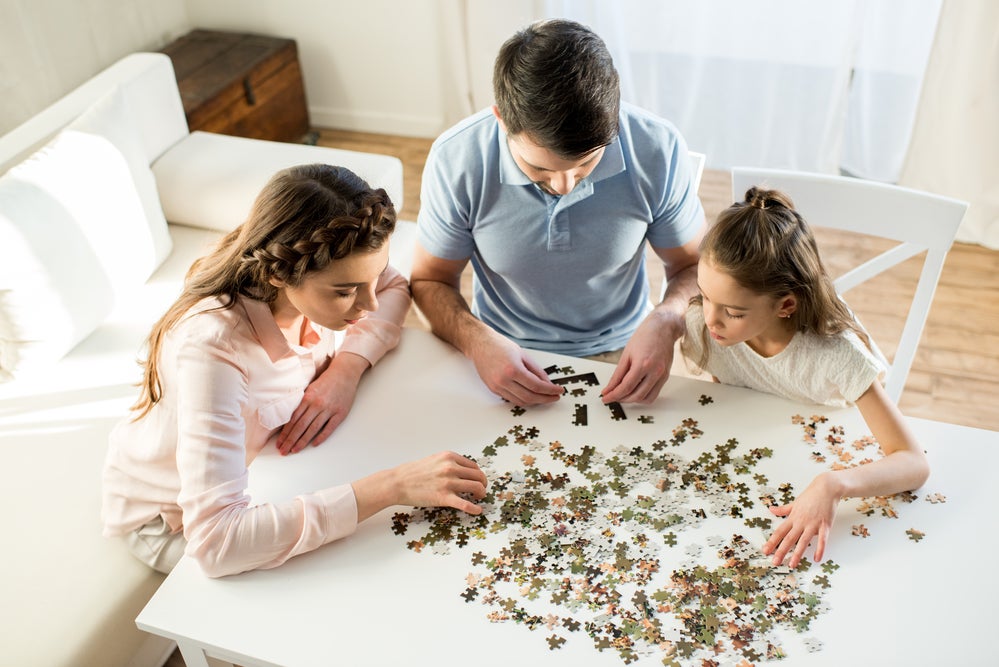
Puzzles provide an excellent opportunity for children to practice their problem-solving skills and develop their memory.
Completing a puzzle together creates a safe space for your child to try and fail, testing out which pieces fit together and which ones don’t. It’s also another way for them to self-regulate their emotions and deal with situations that have the potential to be frustrating.
Start with an easy, age-appropriate puzzle and lay the pieces out on the table face-up to minimize confusion.
Tip: Encourage your child to match particular colors and find pieces to complete the edge of the puzzle first.
5. Cook or Bake Together
A cooperative play activity that ends with a yummy snack? Yes, please!
Cooking or baking with your child not only encourages them to utilize their counting skills and measuring abilities, but it also gives them a great opportunity to practice following directions (which is very similar to following rules).
By listening to the instructions of the recipe you’re creating together and understanding the steps to follow, your young learner will build self-confidence as your dish comes together.
Your little chef can help you by cracking eggs, stirring batter, washing ingredients like fruit or vegetables, and putting toppings on the food.
Some simple recipes you might like to start out with include pizza, cookies, muffins, smoothies, and fruit salad. Maybe you’re feeling creative and you want to develop your own recipe together—the possibilities are endless!
6. Play Pretend with Dress-Up
Last but not least, playing pretend with dress-up is one of our favorite cooperative play activities for many reasons. It promotes imagination and creativity, encourages communication, and requires sharing and negotiation.
Playing a character like a chef, superhero, vet, or firefighter means your child has to imagine and articulate what that character might say and how they might act. And deciding who is going to dress up as which character means learning to negotiate.
For even more of a fun challenge, consider putting on a performance with the characters you’ve created together. This will give your child a chance to practice their forward planning and problem-solving skills.
Strengthen Social Skills with Cooperative Play
Cooperative play is a fantastic way to develop your child’s social skills, communication, and ability to collaborate with others to achieve a shared outcome.
By doing some of the activities in this guide—from playing board games and finishing puzzles to playing pretend and creating a dance routine together—your child can practice their skills while sharing fun experiences with you!
If you’re looking for other ways to help develop their social-emotional learning skills, Begin’s Learn with Sesame Street app can help. Alongside their Sesame Street friends, kids learn how to express their emotions, empathize with others, and create healthy relationships—all skills that will help them with cooperative play!
